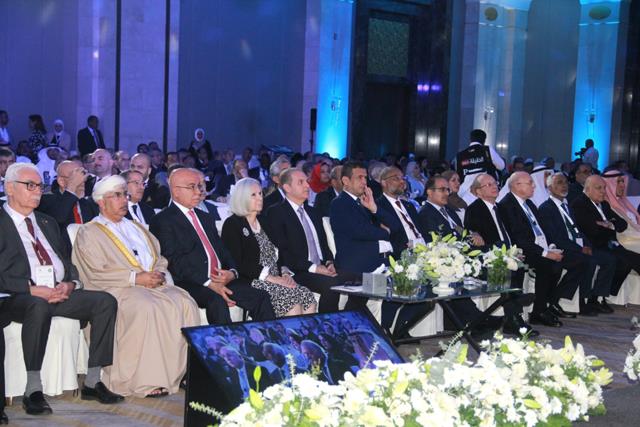
Jordan Hosts First Arab Conference On Expat Health Professionals' Role In Strengthening Regional Health Systems
The event, the first of its kind in the Arab world, was organised in line with the decisions of the Council of Arab Health Ministers, according to the Jordan News Agency, Petra.
The conference, hosted by the Ministry of Health in cooperation with the Arab League's Department of Health and Humanitarian Aid and the Arab Board of Health Specialisations, aims to bolster Arab cooperation in healthcare.
The event gathered about 500 participants, including Arab health ministers and prominent Arab health professionals who have achieved significant success abroad.
Hawari expressed hope that the conference would achieve its objectives, highlighting His Majesty's commitment to addressing health and development challenges in the Arab world.
The minister also emphasised the importance of fostering partnerships among Arab countries to advance health and sustainable development.
He also commended the Arab League, the Council of Arab Ministers of Health, and the Arab Board of Health Specialisations for their support in organising the event, noting that their efforts reflect a shared dedication to improving healthcare across the region.
Hawari also highlighted the negative impact of health worker migration on Arab health systems, stressing the need to retain skilled professionals.
The minister also underlined Jordan's initiatives to maintain ties with expatriate professionals and facilitate their return, citing the amendment of the Jordanian Medical Council Law, and noting that the law has enabled more than 200 expatriate Jordanian doctors to reintegrate into the national health system.
Hawari also announced the near completion of Jordan's first virtual hospital, which will provide remote medical services in diagnostic radiology, intensive care, and dialysis.
The two-day conference will feature six sessions addressing key topics, including the challenges of health worker migration, strategies for leveraging expatriate expertise, and ways to involve expatriates in training, capacity building, and enhancing health services.
Discussions will also explore how these professionals can contribute to scientific research and development in the region.
Iraqi Minister of Health Saleh Hassnawi commended Jordan for hosting the conference and emphasised the importance of nurturing young talent in Arab countries, highlighting Iraq's efforts to cooperate with its expatriate professionals to enhance its healthcare system.
Egypt's Deputy Prime Minister and Minister of Health Khaled Abdel Ghaffar stressed the need to curb the brain drain of Arab health professionals, calling for improved working conditions and financial incentives to retain talent within the region.
Halah Youssef, regional advisor for the United Nations Population Fund for Arab States, commended the conference's focus on retaining Arab health workers and recognised progress in maternal and newborn health, calling for more equitable access to healthcare services across the region.
Hanan Balkhi, regional director for the Eastern Mediterranean at the World Health Organisation, highlighted the region's shortage of healthcare workers, noting that 15 per cent of Arab health professionals are employed abroad.

Legal Disclaimer:
MENAFN provides the information “as is” without warranty of any kind. We do not accept any responsibility or liability for the accuracy, content, images, videos, licenses, completeness, legality, or reliability of the information contained in this article. If you have any complaints or copyright issues related to this article, kindly contact the provider above.






















Comments
No comment